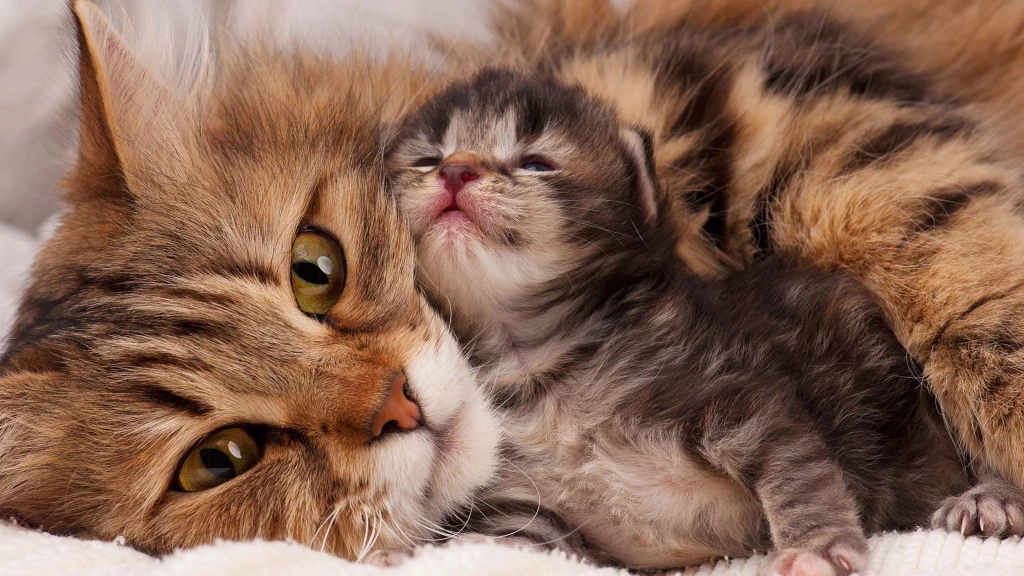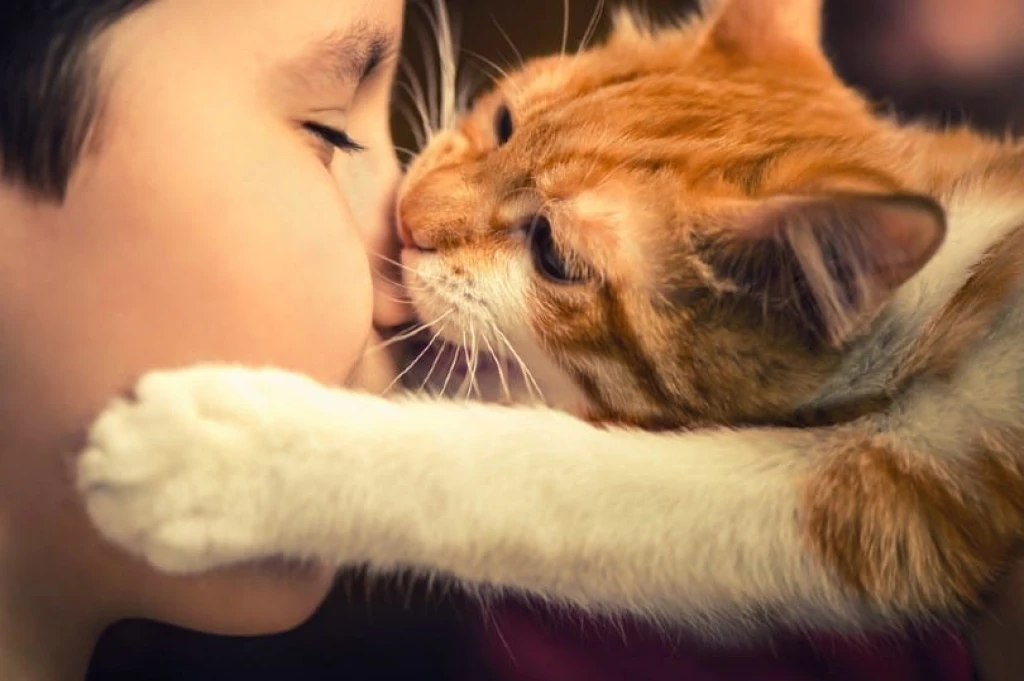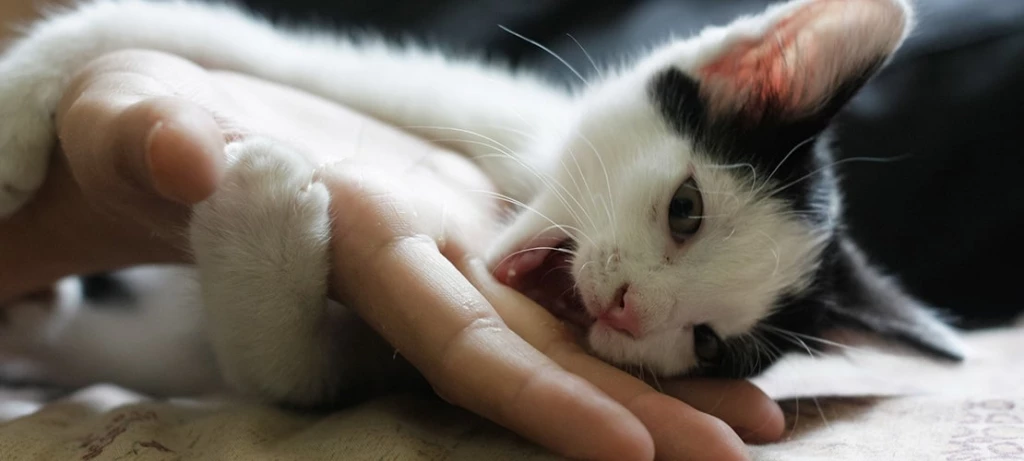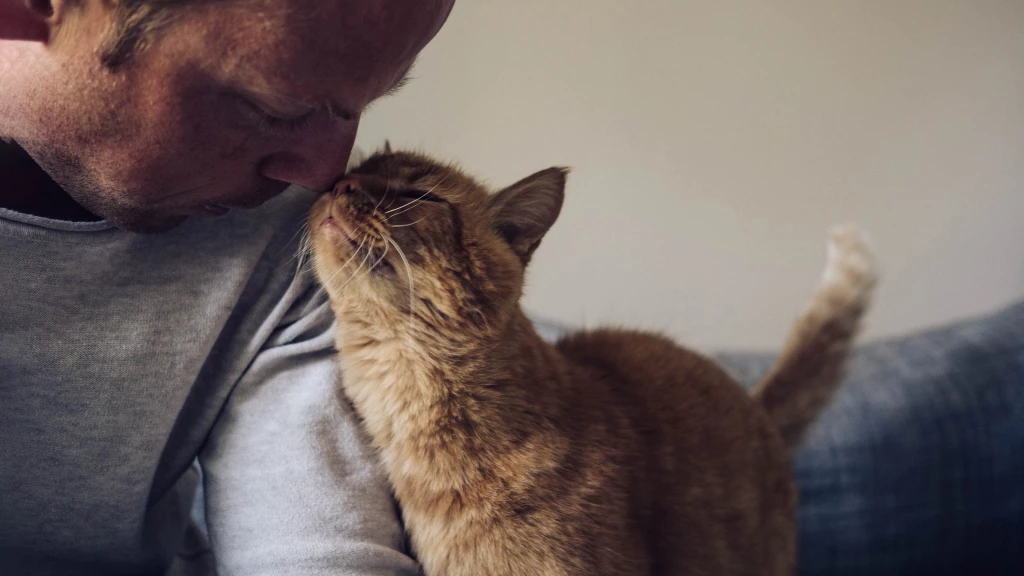Have you ever noticed that your cat's ears are hot to the touch? If so, you might be wondering what causes this and whether it is a sign of a problem.
In this blog post, we will explore some of the possible reasons why your cat's ears are hot and what you can do to help them feel more comfortable. We will also answer some of the most common questions that cat owners have about this topic, such as:
- How hot is too hot for a cat's ears?
- What are the symptoms of ear infections in cats?
- How can I prevent ear problems in my cat?
- What are some home remedies for cat ear issues?
By the end of this blog post, you will have a better understanding of why your cat's ears are hot and how to care for them properly. So, let's get started!
Why Are My Cat’s Ears Hot?
The temperature of your cat's ears can vary depending on several factors, such as:
- The ambient temperature: If it is hot outside or inside your home, your cat's ears will naturally feel warmer as well. This is because cats have very thin skin on their ears, which allows them to dissipate heat more easily. However, this also means that they can lose heat more quickly in cold environments, which can make their ears feel colder.
- The blood flow: Your cat's ears are rich in blood vessels, which help regulate their body temperature. When your cat is excited, stressed, or active, their blood flow increases, which can make their ears feel hotter. Conversely, when your cat is relaxed, sleepy, or calm, their blood flow decreases, which can make their ears feel cooler.
- The inflammation: If your cat has an ear infection, an allergy, a parasite, or a wound, their ears can become inflamed and swollen, which can raise their temperature and cause pain and discomfort. Inflammation can also affect the ear canal and the eardrum, which can impair your cat's hearing and balance.
Therefore, it is normal for your cat's ears to feel hot sometimes, as long as they are not excessively hot or accompanied by other symptoms. However, if you notice that your cat's ears are constantly hot or very hot to the touch, you should consult your veterinarian as soon as possible to rule out any underlying health issues.
How Hot Is Too Hot for a Cat’s Ears?
There is no definitive answer to this question, as different cats may have different ear temperatures depending on their breed, age, size, and fur. However, a general rule of thumb is that your cat's ears should feel slightly warmer than your own ears, but not hot enough to burn your fingers.
If you have a thermometer, you can measure your cat's ear temperature by gently inserting it into their ear canal. A normal ear temperature for a cat is between 37.5°C and 39.5°C (99.5°F and 103.1°F). Anything above or below this range could indicate a problem and should be checked by a vet.
Some of the signs that your cat's ears are too hot include:
- Redness or swelling of the ears
- Scratching or shaking of the ears
- Discharge or odor from the ears
- Loss of appetite or lethargy
- Fever or dehydration
- Head tilting or balance problems
If you notice any of these symptoms in your cat, you should seek veterinary attention immediately, as they could indicate a serious condition such as an ear infection, an ear mite infestation, a foreign body in the ear, a tumor, or a heat stroke.
What Are the Causes of Ear Infections in Cats?
Ear infections are one of the most common reasons why your cat's ears are hot. Ear infections can be caused by bacteria, fungi, viruses, or parasites that enter the ear canal and cause inflammation and irritation. Some of the factors that can increase the risk of ear infections in cats include:
- Allergies: Cats can be allergic to various substances, such as pollen, dust, food, or flea bites, which can trigger an immune response that affects their ears. Allergies can cause itching, swelling, and discharge in the ears, which can create a favorable environment for infections to develop.
- Ear mites: Ear mites are tiny parasites that live in the ear canal and feed on the wax and debris. They can cause intense itching, inflammation, and crusty discharge in the ears, which can lead to secondary bacterial or fungal infections. Ear mites are highly contagious and can spread from one cat to another through direct contact or shared grooming tools.
- Foreign bodies: Sometimes, your cat may get something stuck in their ear, such as a grass seed, a piece of dirt, or a hairball. This can cause irritation, pain, and inflammation in the ear, which can also result in an infection if not removed promptly.
- Trauma: If your cat suffers an injury to their ear, such as a bite wound, a scratch, or a burn, they may develop an infection as a complication. Trauma can damage the skin and the tissues of the ear, which can allow bacteria or fungi to enter and cause infection.
- Tumors: In rare cases, your cat may have a tumor in their ear, which can be benign or malignant. Tumors can cause pressure, pain, and bleeding in the ear, which can also lead to infection if not treated properly.
If you suspect that your cat has an ear infection, you should take them to the vet as soon as possible for diagnosis and treatment. Your vet will examine your cat's ears with an otoscope and take a sample of the ear discharge for testing. Depending on the cause and severity of the infection, your vet may prescribe antibiotics, antifungals, anti-inflammatories, or ear drops to treat your cat's ears. You may also need to clean your cat's ears regularly with a cotton ball and a mild solution recommended by your vet until the infection clears up.
How Can I Prevent Ear Problems in My Cat?
The best way to prevent ear problems in your cat is to keep their ears clean and healthy. Here are some tips on how to do that:
Check your cat's ears regularly for any signs of dirt, wax, discharge, odor, or redness. If you notice any of these, you should clean your cat's ears gently with a cotton ball and a mild solution recommended by your vet. Do not use cotton swabs, alcohol, or hydrogen peroxide, as these can damage your cat's ears and cause more harm than good.
Trim the hair around your cat's ears to prevent it from blocking the ear canal and trapping moisture and debris. You can use a pair of scissors or a clipper to do this, but be careful not to cut your cat's skin or ear. You can also ask your groomer or vet to do this for you if you are not confident.
Keep your cat away from potential allergens or irritants that can cause ear problems, such as pollen, dust, smoke, or chemicals. You can also try to identify and eliminate any food allergies that your cat may have by switching to a hypoallergenic diet or doing an elimination trial with your vet's guidance.
Treat your cat for fleas and ear mites regularly to prevent them from infesting your cat's ears and causing itching and infection. You can use topical or oral medications prescribed by your vet to do this, but make sure to follow the instructions carefully and avoid over-the-counter products that may not be safe or effective for your cat.
Avoid exposing your cat to extreme temperatures or humidity that can affect their ear health. For example, do not leave your cat in a hot car or a cold room for too long, as this can cause heat stroke or frostbite in their ears. Also, do not let your cat swim or bathe in dirty water, as this can introduce bacteria or fungi into their ears and cause infection.
Take your cat to the vet for regular check-ups and vaccinations to prevent any diseases that can affect their ears, such as feline herpesvirus, feline calicivirus, or feline immunodeficiency virus. Your vet will also be able to detect any ear problems early and treat them before they become worse.
By following these tips, you can help keep your cat's ears healthy and happy. However, if you notice any changes in your cat's ears or behavior that concern you, you should always consult your vet for advice and treatment.
What Are Some Home Remedies for Cat Ear Issues?
If your cat has mild ear issues, such as wax buildup, dryness, or minor irritation, you may be able to treat them at home with some natural remedies. However, you should always consult your vet before trying any home remedies, as some of them may not be suitable or safe for your cat. Also, you should never use home remedies for serious ear problems, such as infections, mites, or tumors, as these require professional treatment and may worsen if left untreated.
Some of the home remedies that you can try for your cat's ears include:
- Olive oil: Olive oil is a natural lubricant that can help soften and remove excess wax from your cat's ears. It can also soothe and moisturize dry or irritated ears. To use olive oil for your cat's ears, you will need a dropper and a cotton ball. Warm up some olive oil in a microwave or a water bath until it is slightly above room temperature. Then, use the dropper to put a few drops of olive oil into your cat's ear canal and massage it gently. After a few minutes, use the cotton ball to wipe away any excess oil and wax from the ear. Repeat this once or twice a week until the wax is gone.
- Apple cider vinegar: Apple cider vinegar is a natural antiseptic and anti-inflammatory that can help prevent and treat mild ear infections in cats. It can also balance the pH level of your cat's ears and prevent the growth of bacteria or fungi. To use apple cider vinegar for your cat's ears, you will need a dropper and a cotton ball. Dilute some apple cider vinegar with an equal amount of water and warm it up slightly. Then, use the dropper to put a few drops of the solution into your cat's ear canal and massage it gently. After a few minutes, use the cotton ball to wipe away any excess solution and discharge from the ear. Repeat this once or twice a day until the infection clears up.
- Coconut oil: Coconut oil is a natural antibacterial and antifungal that can help treat ear mites in cats. It can also moisturize and heal your cat's ears. To use coconut oil for your cat's ears, you will need a dropper and a cotton ball. Melt some coconut oil in a microwave or a water bath until it is liquid. Then, use the dropper to put a few drops of coconut oil into your cat's ear canal and massage it gently. After a few minutes, use the cotton ball to wipe away any excess oil and debris from the ear. Repeat this once or twice a day until the mites are gone.
These are some of the home remedies that you can try for your cat's ears. However, remember that these are not substitutes for veterinary care and that you should always consult your vet before using them. Also, if your cat shows any signs of discomfort, pain, or allergic reaction after using these remedies, you should stop using them immediately and take your cat to the vet.
Conclusion
In conclusion, your cat's ears are hot because they are sensitive organs that reflect their body temperature, blood flow, and health status. It is normal for your cat's ears to feel warm sometimes, but if they are too hot or accompanied by other symptoms, you should take them to the vet as soon as possible to rule out any serious problems. You can also prevent ear problems in your cat by keeping their ears clean and healthy with regular checks, grooming, treatments, and visits to the vet. You can also try some home remedies for mild ear issues with your vet's approval.






